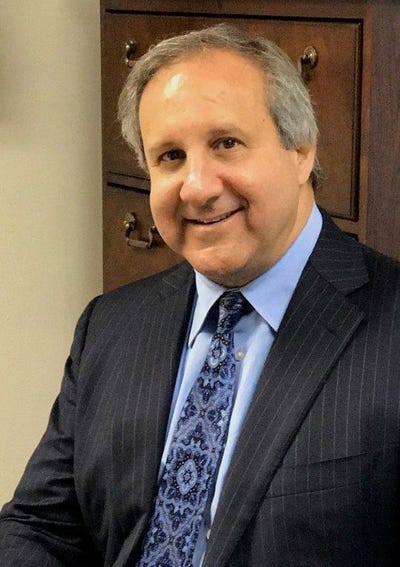New Jersey (and Other) State Estate Tax ChangesNew Jersey (and Other) State Estate Tax Changes
How they’re affected by the current environment of planning uncertainty.

This is Part 1 of a 4-part article on the interplay of changes to state laws with the current uncertainty in the federal estate and gift tax laws. In this part, we’ll explore the inter-relationship of a decoupled state (using New Jersey and its recent estate tax repeal as an example) and planning in an uncertain environment.
Changing Landscape
From a federal estate tax perspective, there hasn’t been such uncertainty since 2012. And there’s perhaps never been a greater possibility of the repeal of the entire estate tax system. But we practice in a particular state(s) and must deal with the implications of state law changes as well as the interplay of those changes with possible federal changes. This article will explore planning in New Jersey, but in the broader context of federal estate tax uncertainty. Hopefully, the planning ideas and guidance, as well as sample client letters that will be presented in the last part of this series, will be useful to other practitioners as well.
In 2016, the New Jersey estate tax affected taxable estates over a mere $675,000. Recent legislation raises the threshold to $2 million for 2017 and repeals the estate tax for decedents dying on or after Jan. 1, 2018. These changes require prompt decision making by clients in conjunction with their estate planning professionals and only after an in-depth review of relevant will and revocable trust provisions. It’s important to remember that most of these documents were prepared for estate tax planning under a different planning landscape. This review should also contemplate some of the possible outcomes of the federal estate tax uncertainty. In particular, the review should address how recent and possible future tax changes may create difficulties in administering estates and determining who gets what. The reality is that most clients won’t want to expend the money or effort to have counsel review documents while the federal estate tax law remains in such flux. The recent changes and ongoing uncertainty will likely trigger future litigation involving interpretation of wills and revocable trusts with common pre-existing formula clauses. In many cases, will construction proceedings will likely be required to unravel the uncertainty.
The estate planning landscape is changing rapidly and dramatically. While we can’t know the ultimate result of these changes (will the New Jersey estate tax repeal be repealed? Will the federal estate tax be repealed?), practitioners need to proactively address this uncertainty and educate clients about possible implications, both tax and otherwise.
Common Dispositive Scenarios
Consider the following examples illustrating common scenarios that might affect married clients who are domiciled in New Jersey. Each of the examples will also endeavor to raise considerations affecting practitioners in other jurisdictions..
Example #1: Clients desiring to avoid a New Jersey (or other Northeastern state) estate tax “moved” to Florida (or another no estate tax state). The clients retained their original home in New Jersey but relocated their primary residence to a condominium in Florida. They changed all financial accounts, many medical care providers and professional advisors to Florida, had their CPA file all tax returns as if they were domiciled in Florida and, at considerable inconvenience, spent more than six months a year in Florida. With New Jersey’s estate tax repeal effective on Jan. 1, 2018, can or should these clients unravel what might have been a questionable change in domicile? Will they do so in light of the greater income tax costs that they will incur as New Jersey residents? Should they wait a few more years in case the New Jersey estate tax repeal is itself repealed?
If all federal transfer taxes (including the gift tax) are repealed, practitioners in every decoupled jurisdiction other than Connecticut (which has a gift tax) will face a similar situation. If the gift tax is repealed, there will be no limit on lifetime transfers to avoid state estate tax. Thus, a married couple that had “changed” their domicile to avoid a state estate tax could instead choose to fund non-reciprocal spousal lifetime access trusts and restore their actual domicile to simplify their lives. However, such gifts may have tax basis implications and ultimately result in a larger capital gains tax on the donees.
Example #2: Each spouse’s revocable trust includes the following dispositive language: “If the Grantor’s Spouse survives the Grantor, the Grantor gives a fractional share of the Trust Estate, as determined after payment of all federal and state transfer taxes, expenses and any gifts provided for above, but before the payment of this bequest, the numerator of which shall be equal to the Grantor’s Estate Tax Exemption and the denominator of which shall be equal to the value of the Trust Estate, as finally determined for federal estate tax purposes, to the Trustee of the Bypass Trust under this Revocable Trust Agreement, to be disposed of under the terms of that Bypass trust. This gift is intended to equal the smaller of the available federal estate tax exemption or the state estate tax exemption under the laws of the Grantor’s domicile.”
The intent of the above provision, a common dispositive approach, was to fund a bypass (credit shelter) trust with the maximum amount that wouldn’t result in a federal estate tax or a state estate tax, if applicable. But consider the impact of state estate tax repeal of the decoupled jurisdiction, New Jersey in our examples, and then the possible impact of a federal estate tax repeal. In some jurisdictions, it’s possible that there will be a federal estate tax (but not a gift tax) repeal, but some decoupled jurisdictions, desperate for revenue, might retain their estate tax based on the federal estate tax law at some point in time before it was repealed.
Had the first spouse died in 2016, the New Jersey estate tax exemption was $675,000, and the credit shelter or bypass trust would be funded only up to that amount.
If the first spouse dies in 2017, the New Jersey exemption is $2 million, and the credit shelter or bypass trust would be funded up to that amount.
If the first spouse dies in 2018, the New Jersey estate tax will be repealed, and the credit shelter or bypass trust could be funded with probate assets totaling up to $5.49 million (based on the 2017 federal estate tax exemption amount, although the 2018 figure will likely be higher by an inflation adjustment if the federal estate tax isn’t repealed).
Delay Certain Decisions
Practitioners should endeavor to inform executors of such estates that beneficiaries may wish to consider disclaimers before accepting property, and perhaps to wait for more clarity in the outcome of the federal estate tax changes before acting. It might be advisable to extend any estate tax returns to provide more time for these decisions. The wide disparity in possible results illustrated below for this common dispositive scheme suggests why.
For clients of long-term first marriages with children only from that marriage, two simple solutions might suggest themselves for new wills or revocable trusts or a codicil to existing wills (or trust amendments). One option is to simply bequeath all assets on the death of the first spouse outright to the surviving spouse. The will could include a disclaimer provision permitting post-mortem planning in the form of shifting assets to a credit shelter or family trust. A second option is to have the will (or revocable trust) bequeath all assets to a lifetime trust for the surviving spouse in which the surviving spouse is entitled to all income (and therefore eligible for qualified terminable interest property (QTIP) treatment). These approaches might resolve some of the issues and ambiguities and provide needed flexibility in the current environment.
Such a QTIP trust results in the following advantages on the first spouse’s death, regardless of the year of death: (1) No federal or New Jersey estate tax is incurred (assuming the marital deduction is available); (2) barring a change in the law, the trust assets should be eligible for a step-up in basis; and (3) there may or may not be a federal estate tax at the surviving spouse’s death attributable to the trust assets, depending on the size of the survivor’s taxable estate, the then current estate tax exemption and the portability of the first deceased spouse’s unused exemption. Given the size of the federal estate tax exemption, this planning should avoid any estate tax for most clients. However, this planning suffers from many deficiencies. First, only about 20 percent of U.S. families are intact as described above, so the reality of client circumstances narrows the situations in which this planning will be appropriate. How often will a surviving spouse disclaim when appropriate to do so? So the outright bequest likely will leave the inherited assets unprotected from creditors, elder abuse and future spouses. The reliance on a QTIP trust also prevents sprinkling of trust income among family members, which may be valuable for income tax minimization and essential to meet financial needs of family members other than a spouse.
When a client has a more complex situation, such as a second (or subsequent) marriage, with children from a first marriage, it’s important to discuss with the client specifically how much, and when, the client wants to pass assets to the children and how much should pass to, or for the benefit of, the spouse. Typical formulas, such as the ones set out above, might have divided the estate between the maximum amount that could pass free of estate tax (federal and/or state) for the children of a first marriage, and only the excess to, or for the benefit of, the surviving spouse. Beginning in 2018, using the literal language of some formula bequests, the entire estate could pass to a credit shelter trust for the children or perhaps directly to the children, leaving nothing for the spouse. In other formula clauses, the literal language could be construed to leave the entire estate to the surviving spouse, or to a QTIP trust for such spouse, and nothing to the children. It’s imperative that the wills and revocable trusts of these clients be reviewed and relevant issues discussed with the clients as soon as possible to determine the clients’ intent.
Part 2 of this article will explore the possible federal changes in greater depth.
About the Authors
You May Also Like









